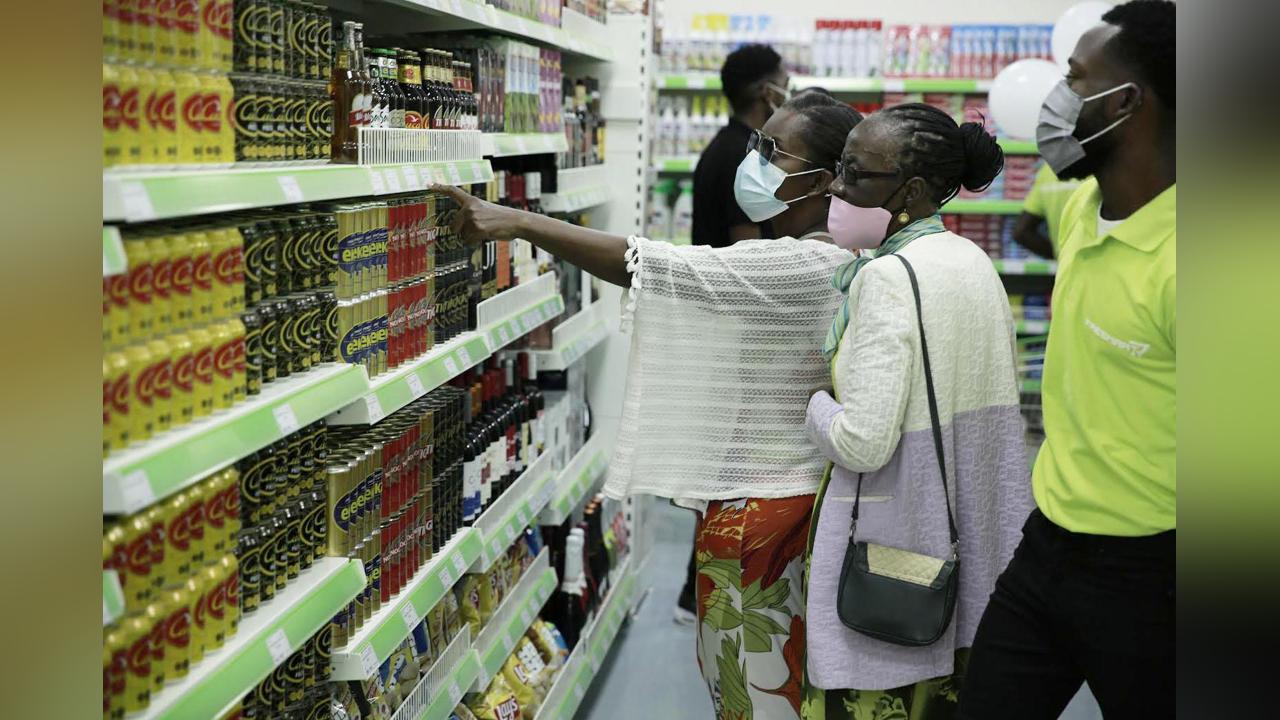Africa-Press – Angola. For some time now, in Angola, citizens’ awareness of consumer rights has been growing, which has satisfactorily resulted in an increase in public complaints and sanctions against bad service providers.
In recent years, awareness campaigns on issues related to consumer rights have become more and more extensive, which has been marking the turning of the page in the relationship between sellers and buyers.
Data from the National Institute for Consumer Defense (Inadec) indicate that the institution helped to resolve, in 2022, through mediation, 1,890 consumer relationship disputes between merchants and consumers.
The institution registered, during the year in question, 1208 complaints, 692 mediations of conflicts and carried out 492 awareness campaigns for consumers and suppliers, an indicator of the increase in consumer culture in relation to their rights.
Through mediation alone, Inadec refunded around 190 million kwanzas to the injured consumers, thus safeguarding their economic rights and interests, resulting from the poor provision of services and contractual breaches.
Among the sectors most claimed by consumers are supermarkets, clinics, fuel pumps, mobile phone operators and public companies.
As part of the verification visits, the National Institute for Consumer Protection carried out, at national level, 2432 visits to commercial establishments and service providers, of which 1375 infringements were detected, which resulted in 648 notifications.
It also promoted 37 training actions, of which 7 were on hygiene and food safety, 27 on excellent customer service and 3 on the resolution of consumer conflicts, training 872 trainees from 147 economic operators.
According to the director of Inadec, Anta Webba, sums were refunded to several consumers who complained against suppliers of goods and services, having safeguarded the interests of consumers, in the total amount of kz 193,466,271.02.
By the way, within the framework of World Consumer Day (March 15), stated that there is already, in the country, greater availability of information on products, on the part of suppliers or sellers.
According to consumer and business manager Yolanda António, it is currently easier for customers to discuss their rights and protest, in case of injustice, through the complaints book provided by service providers.
Consumer Helena Manuel understands that citizens should pay attention to the importance of being more informed about the goods they consume, asserting their rights, while providers of services and goods, especially food suppliers, in small and medium surfaces, need to pay attention, permanently, to the question of the quality of their work.
According to the director of the National Institute for Consumer Defense, Anta Webba, despite the progress made, there is still a need for consumers to raise their awareness of the products and services to be purchased.
In turn, lawyer Evaristo D’Abreu, a specialist in financial markets, confirmed that, although still on a small scale, consumers already have the habit of claiming for their rights, consciously.
As an example, he mentions that students have been looking a lot for advocacy services, to claim for documentation of completed training, as well as purchasers of other goods and services, such as patients of some clinical units.
He made it known that many of these cases referred to have been resolved, despite the fact that there is still a great deal of work to be done in terms of consumer rights.
“Many consumers complain, enforcing their rights, others avoid, for fear of reprisals or even the existing bureaucracies, or even for lack of information where to turn”, highlighted the also specialist in consumer law.
Therefore, he advised the consumer harmed by poorly performed work, such as health, education, finance or similar, to contact the services of a lawyer, in order to thoroughly analyze the case and fight for its resolution.
According to the director of Inadec, Anta Webba, there are currently more than 5,000 trained consumers in the country who are aware of their rights and duties.
The information and support provided by consumer associations relate to the exercise of basic rights, such as safety and health, free choice, repair of defects and access to essential services, such as drinking water and electricity.
Thus, he pointed out, consumer rights are assumed by organizations or associations that, along with the work of inadec, strive to clarify, support and mediate conflicts for a successful resolution.
ANIESA in readiness
For all this awareness-raising work to spread across the country, the National Authority for Food Inspection and Safety (ANIESA) plays a decisive role.
It has already carried out more than 5,000 inspections, but for the full accomplishment of the mission, it needs more than 600 inspectors to respond to the existing demand.
According to the general inspector of ANIESA, Diógenes de Oliveira, within its attributions, the institution has supervised all the activities carried out, in order to safeguard the interest and the most precious asset: the physical integrity of consumers.
Therefore, he advised consumers to maintain food safety, taking into account that, “if they do not take care of food, they automatically neglect their health and, as a consequence, embezzle their treasury.
Although there is still much to be done in the field of supervision, he said that today’s consumers are much more active than 3 or 10 years ago, giving a positive note to the increase in institutions that defend consumer rights.
Current context in the country around consumer law
Meanwhile, with the opening of the market economy in the 90s, the director of inadec, Anta Webba, understands that considerable new habits were created in terms of the supply of goods and services, as well as consumption.
The creation of Inadec, the recent institutionalization of the compulsory nature of the complaints book and the identification stamp, next to commercial establishments, constitute, for you, important steps in the protection of consumers.
The complaints book, for example, helps in monitoring the quality and quantity of services provided to the public, allowing the trader of goods and services to improve his service, a practice that has contributed to the appreciation of the national market, companies and public and private institutions.
For More News And Analysis About Angola Follow Africa-Press






